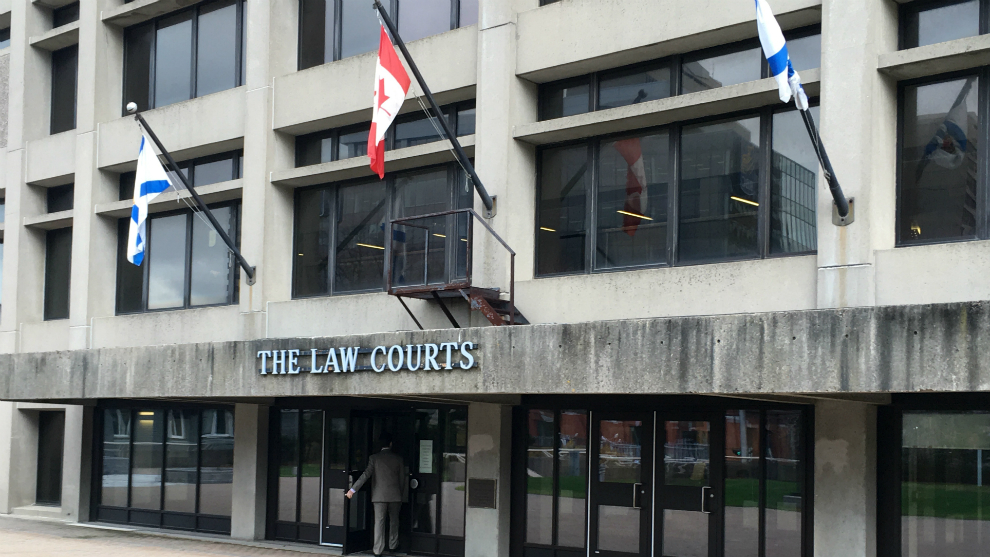Crime
Court of Appeal urged to designate Marriott crime family associate a dangerous offender
Shawn Michael Shea sentenced in 2014 for stabbing fellow inmate

caption
The Law Courts, 1815 Upper Water St. Halifax
caption
The Crown urged the Court of Appeal to overturn a 2014 ruling dismissing their dangerous offender application against Shawn Michael Shea.The Crown has made a second attempt to have a Dartmouth man with a history of violent offences imprisoned indefinitely.
The case of Shawn Michael Shea was heard in the Nova Scotia Court of Appeal on Thursday.
Shea, 37, was convicted of aggravated assault in August 2011 for the stabbing of Keithen Downey at the Central Nova Scotia Correctional Facility a year earlier.
Following his conviction, the Crown requested Shea be declared a dangerous offender based on his lengthy history of violence both in and out of jail. Their application was denied in September 2014 by Judge Anne Derrick, who sentenced Shea to five years in prison instead.
“The Crown has not established on a proof-beyond-a-reasonable-doubt standard that Mr. Shea has shown the patterns of behaviour that qualify for a dangerous offender designation,” Derrick said in her decision.
On Thursday, Crown attorney Adam Scott urged the Court of Appeal to overturn that ruling. He argued that Derrick made a mistake in determining the Crown had failed to prove a pattern of persistent aggressive behaviour.
“We suggest that [Derrick] looked for too much similarity through too narrow a lens,” he said.
A lifetime of crime
The dangerous offender provisions of Canada’s Criminal Code are intended to shield Canadians from the country’s most violent and sexual criminals. Individuals convicted of these offences can be given an indeterminate sentence, with no chance of parole for seven years — if the court determines that the offender poses a risk to the the public. The designation lasts a lifetime.
Shea, an associate of Halifax’s Marriott crime family, has a lengthy criminal record that includes 58 offences. His conviction for the 2010 stabbing of Downey was his fifth federal prison sentence.
Scott told the court’s three-member panel that 26 of these offences were incidents involving assault, that were mostly unprovoked and formed a pattern of persistent aggression toward others.
“There is a danger of looking for a pattern within the violence, rather than recognizing that the violence itself is the essential element that forms the pattern,” Scott told the court. “That’s what we submit ultimately occurred in this case.”
Shea’s lawyer, Roger Burrill, told the court that the incidents did not prove an implicit error of law on the part of Derrick.
“Generic similarities are indeed not enough to prove a pattern,” he said. “The Crown will not convince you of anything more than the fact that they are concerned over the outcome of this case as opposed to the application of the law.”
The court has reserved its decision after hearing both arguments. It did not indicate when a decision would be made.

